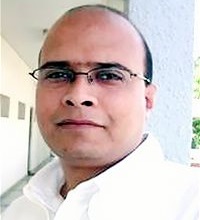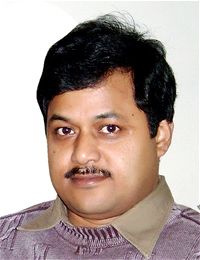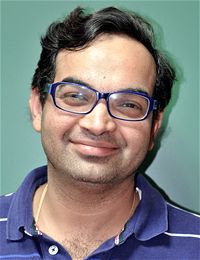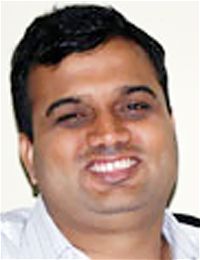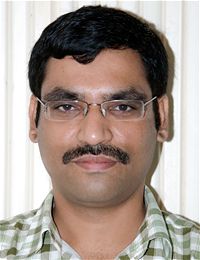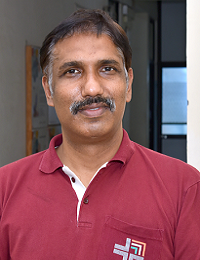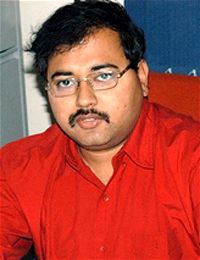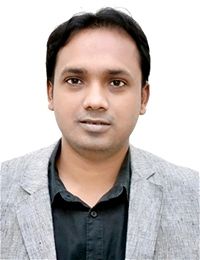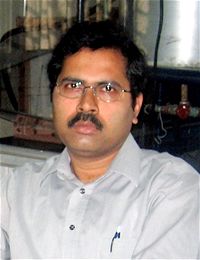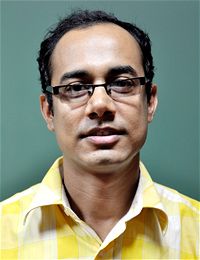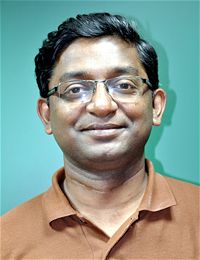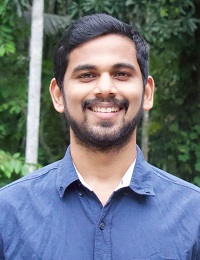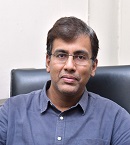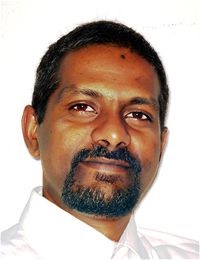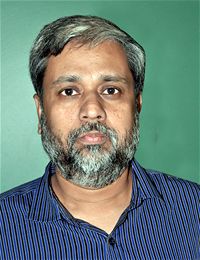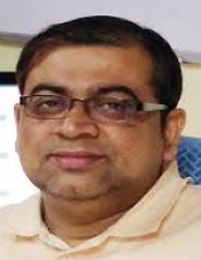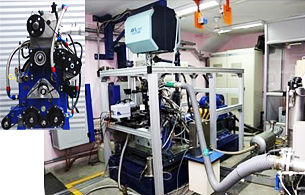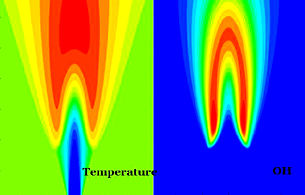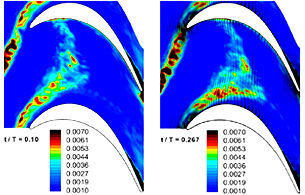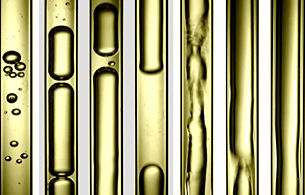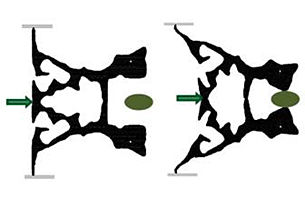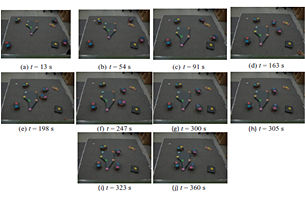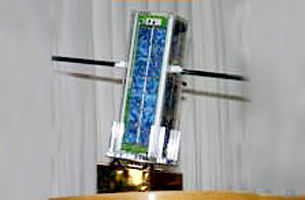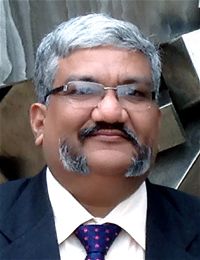Welcome Message

Welcome to the Department of Mechanical Engineering at IIT Kanpur. We started our journey in the year of 1960. Over the last six decades, we have grown our expertise and competence in the core Mechanical Engineering curriculum and research....
- Read More
-Prof. Ashish Dutta
Head, Department of Mechanical Engineering
Featured Faculty
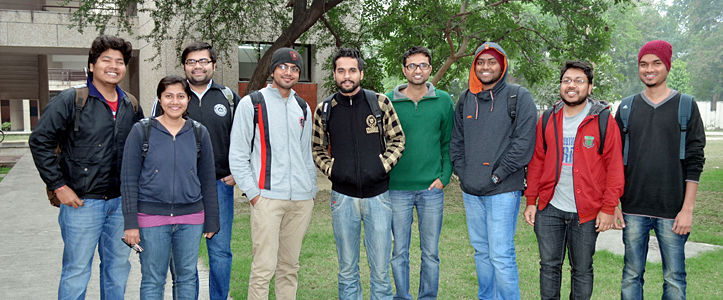
Mechanical engineering is concerned with the management of people and resources, the creation and use of new technologies and the design and development of new materials, processes and products. This mostly involves 'things that move', such as motor vehicles, aircraft systems, engines, pumps, gas turbines, industrial plants, air-conditioning/refrigeration systems, manufacturing processes, building services and even components of nuclear reactor, space vehicles and missiles.
Core courses in both undergraduate and postgraduate programs explore fundamental principles governing energy conversion, fluid and solid mechanics, dynamics, and engineering design. Our programs focus on giving you a hands-on education with a solid theoretical foundation to best prepare you for broad career possibilities in the engineering fields. Elective courses are devoted to the creative application of these fundamental principles to solve modern technological problems. These include courses devoted to robotics and controls, modern manufacturing processes, advanced materials, non-linear vibration, numerical fluid flow and heat transfer, combustion and engines, alternative fuels, etc.
The following degree programs are actively pursued in Mechanical Engineering department.
Bachelor of Technology in Mechanical Engineering
At the undergraduate level, the department awards a Bachelor of Technology (B. Tech.) degree in Mechanical Engineering. In addition to rigorous courses, undergraduates complete a final year students design project, and are encouraged to participate in extracurricular student projects and competitions, and undergraduate research. Learn more:
Bachelor of Technology – Master of Technology Dual Degree in Mechanical Engineering
The Bachelor of Technology – Master of Technology (B. Tech. - M. Tech.) in Mechanical Engineering is a five-year program comprising of ten semesters. Students spend their first seven semesters doing undergraduate courses together with the students of the B. Tech. programme, while the last three semesters are spent doing postgraduate courses and research work together with the students of the M. Tech. programme. Learn more:
Minor in Mechanical Engineering
The department of Mechanical Engineering offers minor in Manufacturing Sciences and Computational Techniques. Learn more:
Dual Major in Mechanical Engineering
The department of Mechanical Engineering also offers dual major in Mechanical Engineering for the students registered for its B. Tech. degree program. Learn more:
Master of Technology in Mechanical Engineering
The M. Tech. degree is intended for students with an undergraduate degree in mechanical engineering or a closely related field. Students with undergraduate degrees other than Mechanical or Aerospace Engineering and who have completed standard entry-level math, natural science, and engineering fundamental courses may also qualify for the M. Tech. degree. Learn more:
Doctor of Philosophy (PhD)
The program emphasizes PhD level study and research. Study for a PhD is approximately 20% course work and 80% research. PhD students can pursue on either a full-time or part-time basis. We also admit B. Tech. graduates in our direct PhD program. Learn more:
Besides the traditional research areas in thermodynamics, fluid dynamics, heat transfer, multiphase flows, turbulence and combustion, this group is engaged in a broad range of research activities in experimental fluid dynamics, computational fluid dynamics and heat transfer, flow in porous media, turbomachinery, electrochemical energy conversion, IC engines, alternate fuels, laser diagnostic techniques, micro-fluidics and heat transfer, boiling heat transfer, condensation, heat pipes, thermal management, sprays, turbulent combustion, hydrodynamic instabilities, vortex dynamics, gravity currents, energy storage materials, atomic scale computation, etc.
The entire research in Fluid and Thermal Sciences stream is divided into the following four tracks.
Participating Faculty
- Prof. Avinash Kumar Agarwal
- Prof. Jishnu Bhattacharya
- Prof. Malay K. Das
- Prof. Santanu De
- Prof. Arun K. Saha
- Prof. Subrata Sarkar
- Prof. Gautam Biswas
- Prof. P. S. Ghoshdastidar
- Prof. Sameer Khandekar
- Prof. K. Muralidhar
- Prof. P. K. Panigrahi
- Prof. Prabhat Munshi
- Prof. Ishan Sharma
- Prof. Sachin Y. Shinde
- Prof. Pranav Joshi
- Prof. Aditya Saurabh
- Prof. Anikesh Pal
- Prof. Umesh Madanan
Research Facilities
| CFD Laboratory | High performance computing clusters |
| Computational Turbo machinery Laboratory | High performance computing Clusters:
|
| Energy Conversion and Storage Laboratory | Electrochemical test station (in-house development), Stereoscopic shadowgraphy, Two-phase particle image velocimetry |
| Engine Research Laboratory |
|
| Experimental Turbomachinery Laboratory | Hot Wire Anemometer, PIV, LDA and Electronically scanned pressure sensor. |
| Fluid mechanics Lab |
|
| Gas Turbine Heat Transfer Laboratory | Thermocouples, IR Camera, High Speed Blower, High Speed Camera, Shadowgraph Setup (Multiple Cameras, Laser as light-source, Optical quality mirror) |
| Micro-scale transport laboratory | Micro-PIV with Nd:YAG laser, Micro-holographic measurement system, Micro-LIF, Syringe pump; Gear pump, Ultra-Sonicator, Di?erential Pressure Transducer, Mechanical Stirrer, Centrifuge, Magnetic Particle Separator |
| Phase-change Thermal Systems Laboratory | High Speed Camera ,CCD camera, Infrared camera Vacuum pumps (di?usion and turbo molecular), Thermal baths Leak detectors |
| Water Tunnel Facility | Water Tunnel Set-up, Laser Doppler Velocimetry (LDV), Laser Induced Fluorescence (LIF), Hotwire Anemometry, Load-Cell. |

Unified synthesis of linkages with flexible and rigid links
Our focus is to analyze and comprehend diverse designs in nature that are time-tested and robust, and to implement assimilated concepts for optimal form design in engineering problems. Product design, precision instrumentation, sensing and actuation, MEMS/NEMS, humanoid robotics, automated highway systems, formation flight control, exploration, surveillance, search and rescue, transportation, and in prosthetic, orthotic and exoskeletal devices are some of the relevant areas of applications. We develop novel engineering solutions by utilizing mechanical compliance in design, undertake research to create knowledge, understanding, methods and tools to improve the design process.
Research Areas
- Domain Mapping for surface modelling, motion planning and protein docking.
- Protein docking through shape complementarity of molecular surfaces.
- Multimodal optimization: Recursive Perturbation Approach (RePAMO).
- Multi-objective optimization: Fourier series parameterization of Pareto-sets.
Research Laboratories:
Compliant and Robotics Systems (CARS) Lab
Associated Faculty
Bhaskar Dasgupta, PhD (IISc Bangalore): Robotics, CAD, Mechanisms, Machine Dynamics, Engineering Computation.
Anupam Saxena (PhD, University of Pennsylvania, USA): Compliant Mechanisms, Topology Design, CAD, Robotics, MEMs, Optimization, Large Deformation Systems
Nachiketa Tiwari, PhD (Viriginia Tech): Acoustics and Noise Control, Solid Mechanics, Composite Structures, Vibrations, Product Design, Automotive Systems, MEMS.

Oscillations of a boat in a tank
The research activities in this track involve theoretical, experimental and numerical techniques applied over a wide range of materials, composites, metals, polymers, etc. Our research spans from structural dynamics, nonlinear solid mechanics, mechanics of defects and heterogeneities, structural health monitoring to estimation of mechanical behavior of nanomaterials using molecular dynamics simulations, processing and characterizations of advanced materials such as polymers, carbon-carbon/silicon composites, nanocomposites, multifunctional and functionally graded composites.
Research Areas
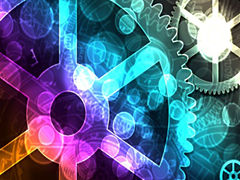
Applied Mechanics
Low-dimensional modeling of frictional hysteresis, modal damping from dispersed frictional micro cracks, mechanics of thin films, contact mechanics, patterned adhesives, AFM modeling, continuum thermodynamics, fluid-structure interaction.
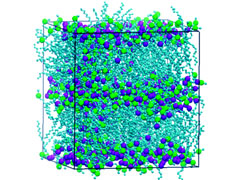
Computational Mechanics
The researchers in computational mechanics solve mechanical problems using numerical algorithms. The applicable length scale ranges from the atomic to large structures, and methodologies include molecular dynamics, PDE solvers, finite elements and discrete dislocation dynamics.
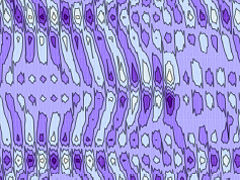
Mechanics of Defects and Heterogeneities
Non destructive testing, modeling impact for ductile and brittle materials, mechanics of grain boundaries in polycrystals, dislocation dynamics, fracture in layered and graded materials.
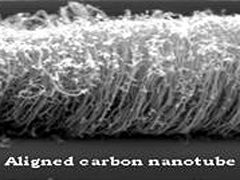
Mechanics of Materials
Research work in Mechanics of Materials is highly interdisciplinary and centres on the development of novel structural and functional materials for a wide range of technological applications. We establish complex structure-property relationships using state-of-the-art materials characterization techniques, atomic force microscopy, electron microscopy, and estimate mechanical behavior of nanomaterials using MM/MD simulations. Our research spans from buckling of nanotubes, large deformation in single-layered graphene sheets, vibration mode localization in single- and multi-layered graphene sheets to processing and characterizations of advanced materials such as polymers, carbon-carbon/silicon composites, nanocomposites, multifunctional and functionally graded composites.
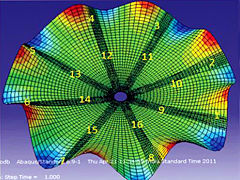
Smart Materials, Structures and Systems
Active and semi-active vibration control, Adaptive Shape Control, Smart Compliant Mechanisms, Dynamic response based Structural Health Monitoring.
Research Laboratories:
Computational Mechanics Laboratory
High speed expt. mechanics Laboratory
NDT Laboratory
Compliant and Robotics Systems (CARS) Laboratory
Advanced Nanoengineering Materials Laboratory
Smart Materials, Structures and Systems Laboratory
Associated Faculty
Sumit Basu, PhD (IISc Bangalore): Multi scale modeling of solids, Finite deformations, Non-linear Finite Element techniques, Surfaces and interfaces, Mechanics of Fracture, Mechanical behavior of polymers.
Bishakh Bhattacharya, PhD (IISc Bangalore): Smart Structures, Active & Passive Vibration Control, Flexible Manipulators and Smart complaint joints, Active Shape Control and Adaptive Structures.
Anindya Chatterjee, PhD (Cornell University): Dynamics and Vibrations.
Sovan L. Das, PhD (Cornell University): Mechanics of Biological Membranes, Continuum Mechanics and Granular Mechanics.
P. M. Dixit, PhD (Minnesota): Metal Forming, Ductile Fracture, Elasto-plastic Impact / Contact Problems and Finite Element Method.
Anurag Gupta, PhD (UC Berkeley): Interfaces in solids; Geometry of defects in solids; Plastic instability; Irreversible thermodynamics of continuous media; Mechanics of Indian musical instruments.
Shakti S. Gupta, PhD (Virginia Tech): Linear/Nonlinear Structural Mechanics, Mechanics of Nanomaterials and their Characterization using Molecular Simulations.
S. Mahesh, PhD (Cornell University): Solid Mechanics, Composite Materials and Manufacturing Processes.
Kamal K. Kar, PhD (IIT Kharagpur): Polymer, Polymer Blends, Alloys and Composites, Polymer Processing and Rheology
N. N. Kishore, PhD (IIT, Kanpur): Composite Materials, FEM and Non-Destructive Testing.
Basant Lal Sharma, PhD (Cornell University): Continuum Mechanics and Thermodynamics, Lattice Dynamics, Dislocations and Solid-Solid Phase transformation.
Ishan Sharma, PhD (Cornell University): Modeling granular systems for geophysical and industrial applications. Specific problems include dynamics of granular minor planets, and segregation in granular mixtures.Various problems of mechanics including contact mechanics and adhesion, dynamics, and stability and vibrations of structural and fluid-structural systems.
P. Venkitanarayanan, PhD (University of Rhode Island): Experimental Solid Mechanics, Dynamic Fracture Mechanics, Functionally Graded Composites.
Nalinaksh S. Vyas, Ph D. (IIT Delhi): Vibrations, Rotor Dynamics, Virtual Instrumentation, Condition Monitoring.
Pankaj Wahi, PhD (IISc Bangalore): Reduced order modeling, Vibration of continuous systems, Control of self-excited oscillations, Mechanics of machining, Time-delayed systems.

Nonlinear Modeling of Electrodynamic Systems
Research in Acoustics, Dynamics and Vibration track is directed at the many challenging problems associated with the design and operation of modern engineering structures, ranging from development of fundamental theory and innovative computational tools to application-based research into topics such as offshore structures, vehicles, ground-borne vibration and musical instruments. We have access to extensive computational and experimental facilities, and we have close ties with industry, research and other academic institutions. Research expertise of our faculties lies in areas related to structural vibration, vibration control, noise control, acoustics, stability, bifurcation & chaos, pattern formation, non-smooth systems, time-detailed systems.
Research Areas
- Linear and nonlinear modeling of electrodynamic systems
- Anti lock braking system, Traction control system & Electronic stability control
- Effect of nonlinearities on the system behavior
- Vibration characteristics of continuous systems like strings, plates and shells.
- Study of Indian stringed musical instruments.
- Instabilities in structures and hydrodynamic systems.
- Machine-tool vibrations.
- Time-delayed systems.
- Reduced order modeling
Research Laboratories:
Nonlinear Mechanics Laboratory
Acoustics Laboratory
Associated Faculty
Anindya Chatterjee, PhD (Cornell University): Dynamics and Vibrations.
Shakti S. Gupta, PhD (Virginia Tech): Linear/Nonlinear Structural Mechanics, Mechanics of Nanomaterials and their Characterization using Molecular Simulations.
Nachiketa Tiwari, PhD (Viriginia Tech): Acoustics and Noise Control, Solid Mechanics, Composite Structures, Vibrations, Product Design, Automotive Systems, MEMS.
Nalinaksh S. Vyas, PhD (IIT Delhi): Vibrations, Rotor Dynamics, Virtual Instrumentation, Condition Monitoring.
Pankaj Wahi, PhD (IISc Bangalore): Reduced order modeling, Vibration of continuous systems, Control of self-excited oscillations, Mechanics of machining, Time-delayed systems.
Highlights
- List of candidates from CFTI selected for provisional admission for PhD program in Mechanical Engineering for the session 2025-26-I.New
- Department of Mechanical Engineering, IIT Kanpur Presents 2nd Mechanical Sciences Young Investigators Meet MSYIM 2025 17-19 March 2025. Visit the website for more details: MSYIM 2025
- Guidelines for the Application of Institute Post Doctoral Fellows
- Applications invited for direct PhD students for the semester 2025-26-I. Last date of application February 20, 2025
- List of Selected candidates: Winter PG Admission 2024
- Candidates Shortlisted for Interview: Winter Admission PhD Programme 2024
- Dates for PhD winter admission 2024 written exam and interviews: November 27-28, 2024
- Reporting date of all new PG students: Jul 18 - 19, 2024
- Departmental Orientation of new PG Students: Jul 20, 2024, 2:30 PM onward, Venue: L16
- PhD admission (Round 2): Application form available here. Last date of application: 4th July 2024. Online written test: 7th July, 2024, Online/Offline Interviews: 10th July, 2024
- M.Tech. Admission (through COAP): Cutoff score, Vacancy and fee paid data
- Selected candidates for provisional admission in PhD programme
- Selected and WL candidates for MS(R) admission (Institute-sponsored category) Round 1
- Rolling advertisement for faculty recruitment






